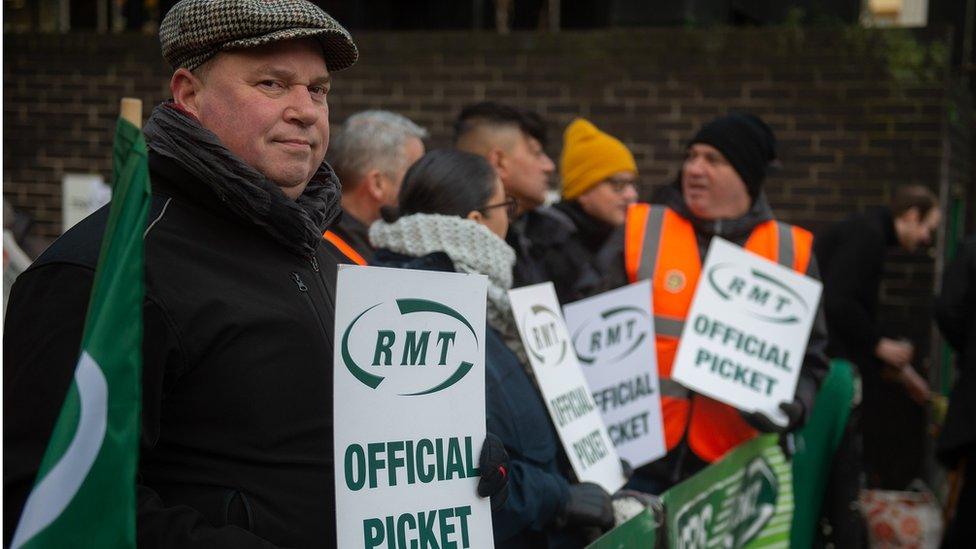Train strikes planned in March and April suspended
- Published

Planned rail strikes in March and April have been called off.
RMT union members, including train guards, who work at 14 train companies were set to walk out on 30 March and 1 April.
The Rail Delivery Group (RDG) - which represents train companies - said it was now focused on "working constructively towards a settlement to this dispute."
It comes after RMT members at Network Rail voted to accept a pay deal.
The RDG said it was a "welcome step" by the RMT union leaders to call off the planned action.
"We are now jointly focused on working constructively towards a settlement to this dispute, which will mean we can do what we have always wanted to do - give our people a pay rise and help secure the long-term future of the railway", a RDG spokesperson said.
The RMT, the country's largest rail union, said the proposal tabled by the RDG could lead to a resolution to the national rail dispute.
The RDG has not yet made a new or updated offer.
But the RMT said the two sides would now hold further talks "with a view to securing a new offer on pay, job security and working conditions".
The RMT made clear that the dispute between the train companies and union members had not ended.
It said it would continue to prepare to re-ballot members when the current mandates runs out in mid-May.
A Department for Transport spokesperson said the "positive step" brought both sides closer to ending the dispute.
"After Network Rail employees overwhelmingly voted to accept a similar pay offer earlier this week, we're once again asking the RMT executive to do the right thing and put this fair and reasonable offer to its members, giving them the pay rise they deserve and helping us end this dispute," the spokesperson added.
The last rail strike on 18 March saw workers across 14 train operators walk out. It meant that only 40-50% of trains were running, with travellers taking to social media to complain about disruption to their journeys.
The ongoing dispute between workers and rail bosses has led to several walkouts since June last year.
The UK has seen strikes across several industries over the last twelve months, with workers largely concerned about pay - which has not increased in line with rising prices. Inflation - the rate at which prices rise - is at its highest in nearly four decades.
Striking professions have included nurses, junior doctors, civil servants and teachers.
Related topics
- Published20 March 2023
- Published8 March 2023